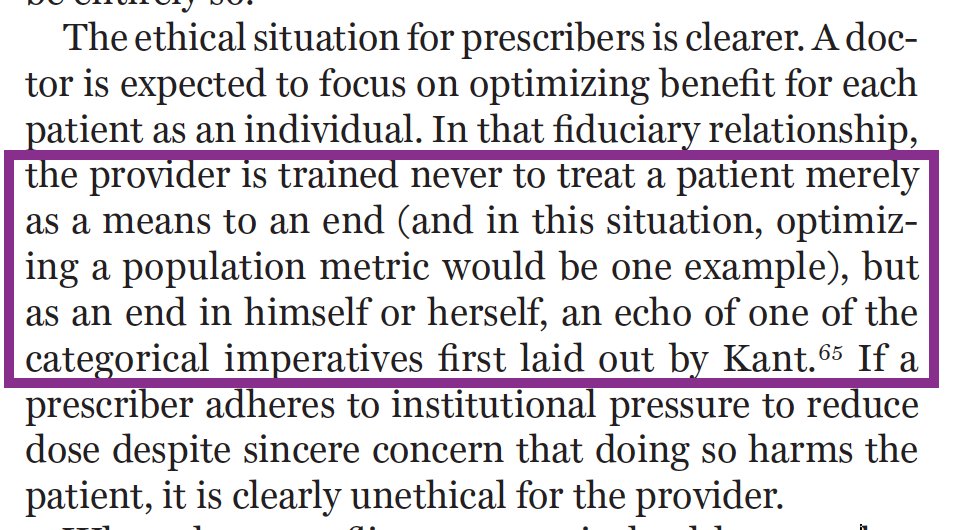
1/FYI:Opioid Rx’s ⬇️ 60% vs 9 years ago.
Outcomes have not been good. OD deaths are way ⬆️, & patients traumatized
This thread covers 4 years of my peer-reviewed articles.
Let’s recalibrate policy, measure what we are doing, and LISTEN to the folks whose lives are at stake
Outcomes have not been good. OD deaths are way ⬆️, & patients traumatized
This thread covers 4 years of my peer-reviewed articles.
Let’s recalibrate policy, measure what we are doing, and LISTEN to the folks whose lives are at stake
https://twitter.com/johannhari101/status/1344402937121009664
2/This is the overall policy review of how we got here and how we mis-allocated the response (with @AJ_Gordon) ,
and why policy winds up (inevitably) being less than rational in the real world @AddictionJrnl onlinelibrary.wiley.com/doi/abs/10.111…
and why policy winds up (inevitably) being less than rational in the real world @AddictionJrnl onlinelibrary.wiley.com/doi/abs/10.111…
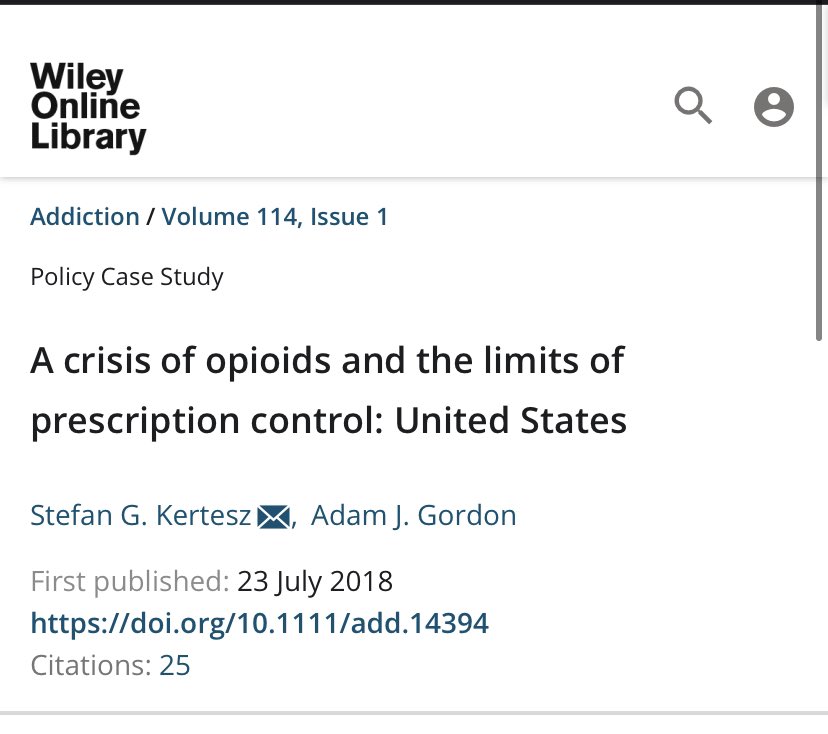
3/This piece says why efforts to “Turn the Tide” with a narrow focus on Rx risked a Riptide for patients, as fentanyl deaths rose.
The article led me to brief then Surgeon General @vivek_murthy in 2017- who shared this concern completely tandfonline.com/doi/full/10.10…
The article led me to brief then Surgeon General @vivek_murthy in 2017- who shared this concern completely tandfonline.com/doi/full/10.10…
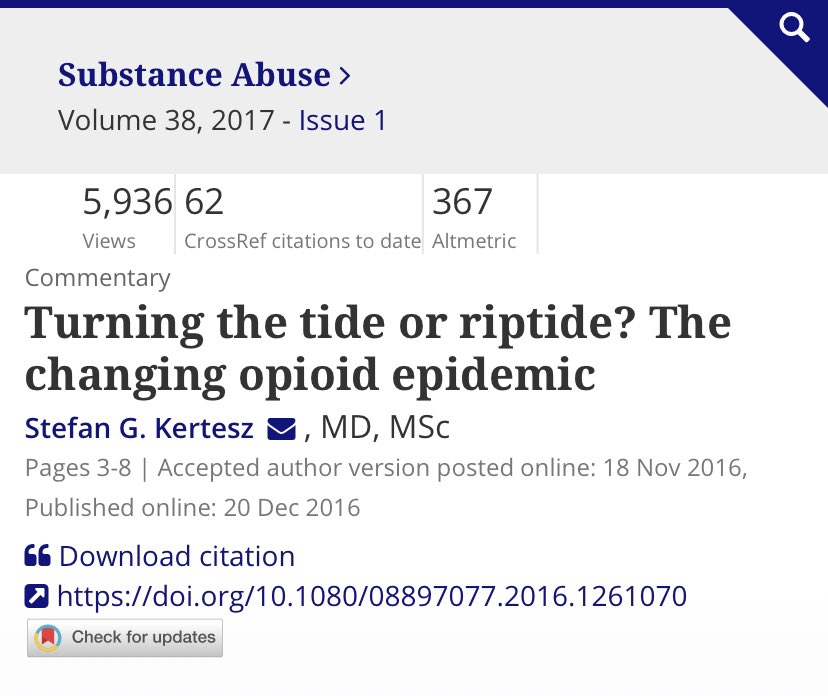
4/Here in @JAMANetworkOpen with Dr Jeffrey Samet in 2018, we discuss “Directions & Misdirections” in opioid policy - the need is for treatment expansion & education. jamanetwork.com/journals/jaman… 
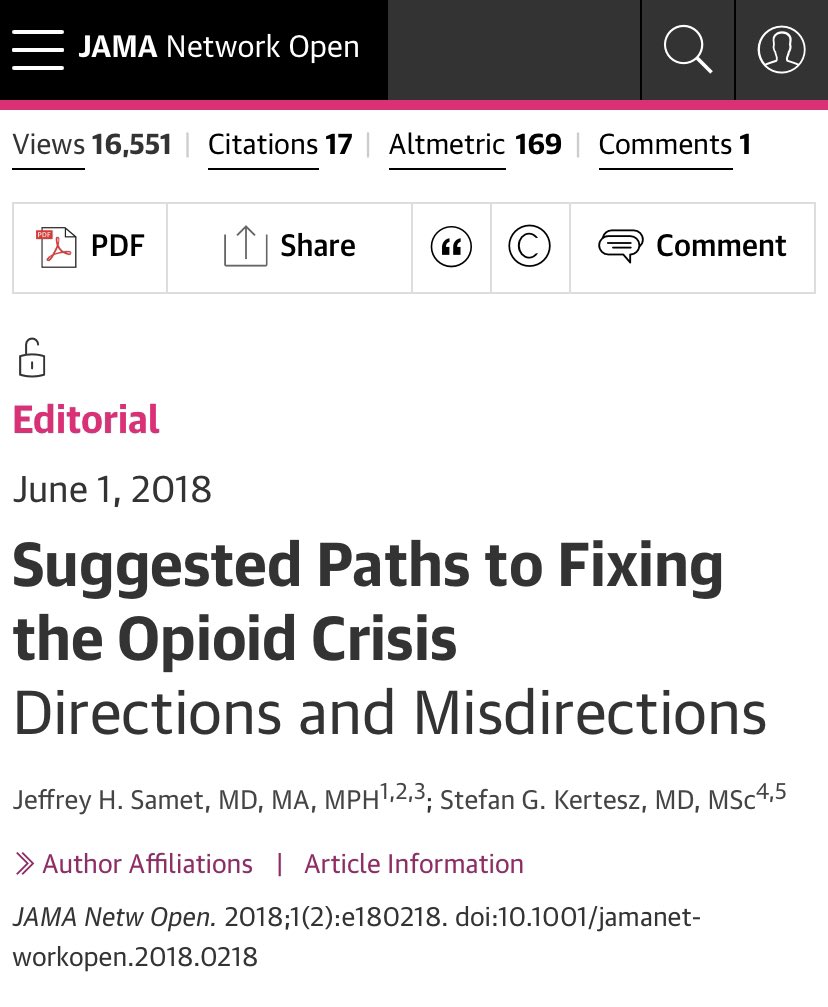
5/Here 3 clinician-researcher declare that that prescriptionsare a “solemn responsibility”
But we saw no evidence that legal restrictions on duration will substantially alter the prevalence of addiction, @MMundkur @AJ_Gordon tandfonline.com/doi/full/10.10…
But we saw no evidence that legal restrictions on duration will substantially alter the prevalence of addiction, @MMundkur @AJ_Gordon tandfonline.com/doi/full/10.10…
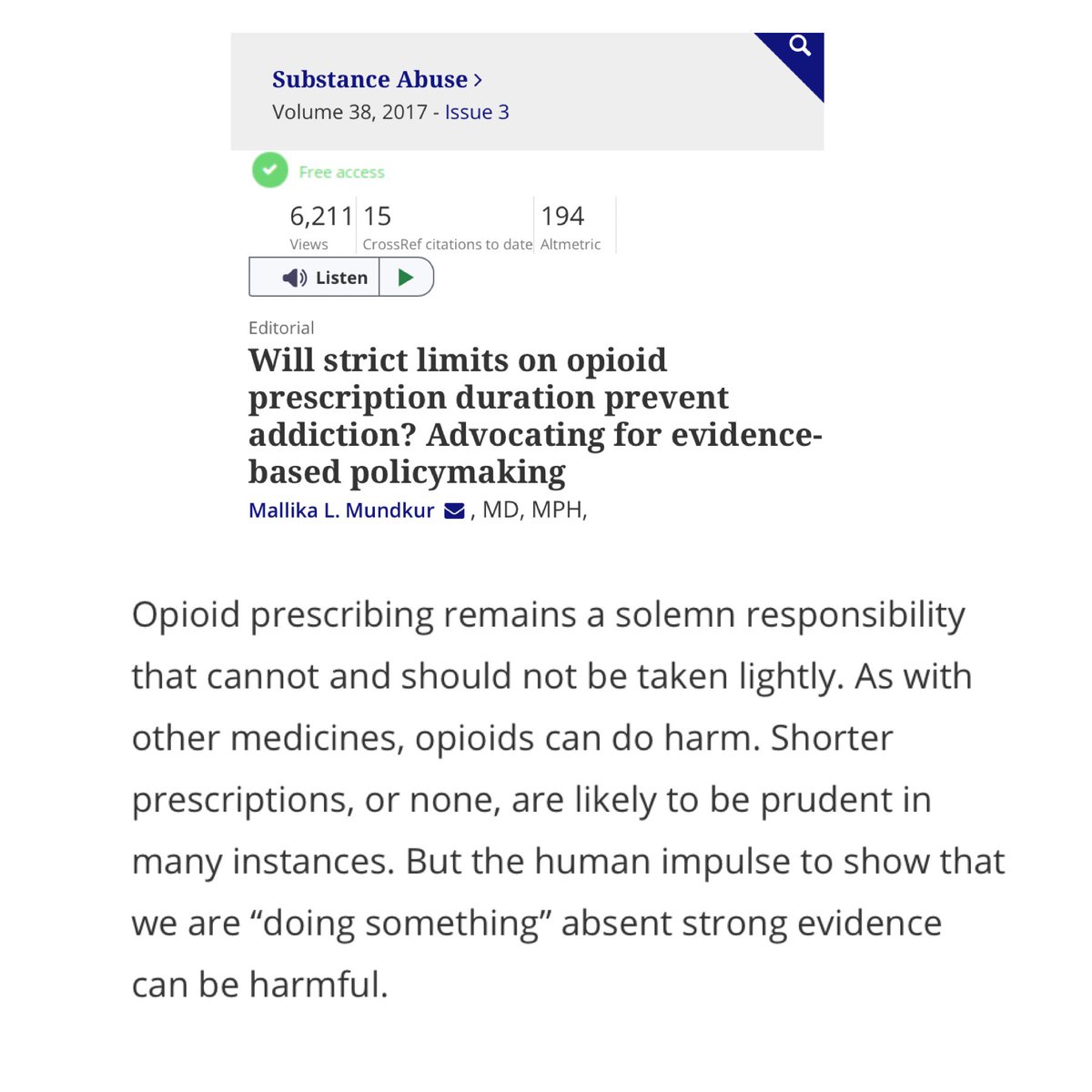
6/The presence of prescribed opioids in decedents is a reminder that they still do matter, however, I wrote with @DrScottHadland in @bmj_latest based on work by @Tara_Gomes
And the policy response requires a broader approach bmj.com/content/362/bm…
And the policy response requires a broader approach bmj.com/content/362/bm…
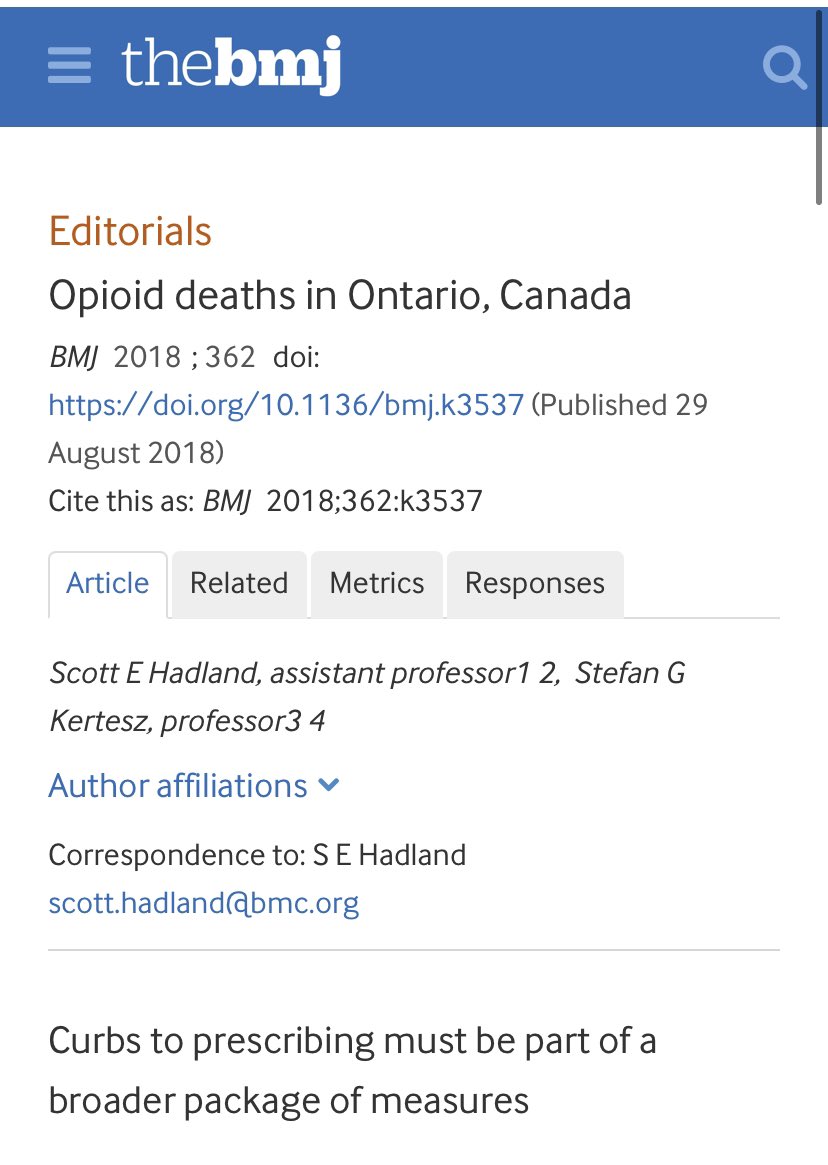
7/This 2019 editorial in @ASAMorg Journal of Addiction Med delivers a simple plea: that we start measuring the outcomes of prescription policies journalofsubstanceabusetreatment.com/article/S0740-… 
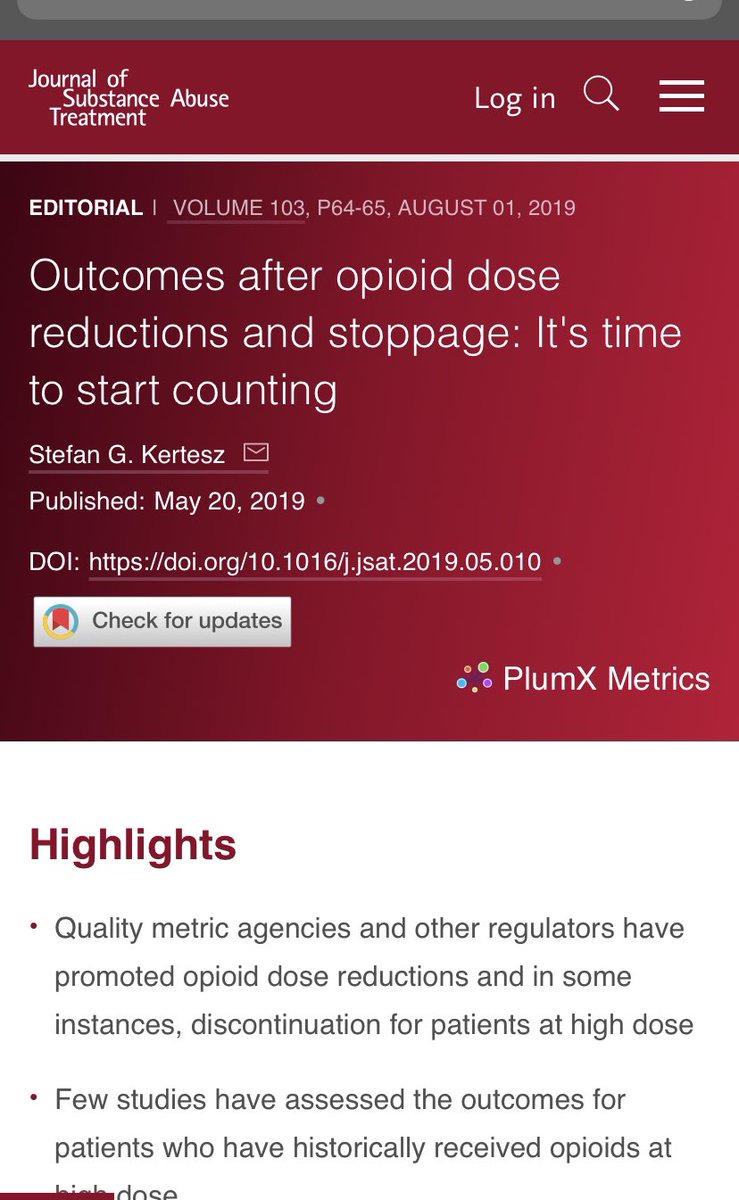
8/One reason for concern was this: observational followup data where overdose and suicide were higher in persons who had opioid discontinuation. It is not proof of cause & effect but it sends a signal of concern. bmj.com/content/368/bm…
9/By 2020, we urged that mandates to taper #opioids were not justified ethically or clinically -
even when there could be debate about the original initiation of those meds.
Clinical complexity shouldn’t eclipse moral clarity journals.sagepub.com/doi/full/10.11…
even when there could be debate about the original initiation of those meds.
Clinical complexity shouldn’t eclipse moral clarity journals.sagepub.com/doi/full/10.11…
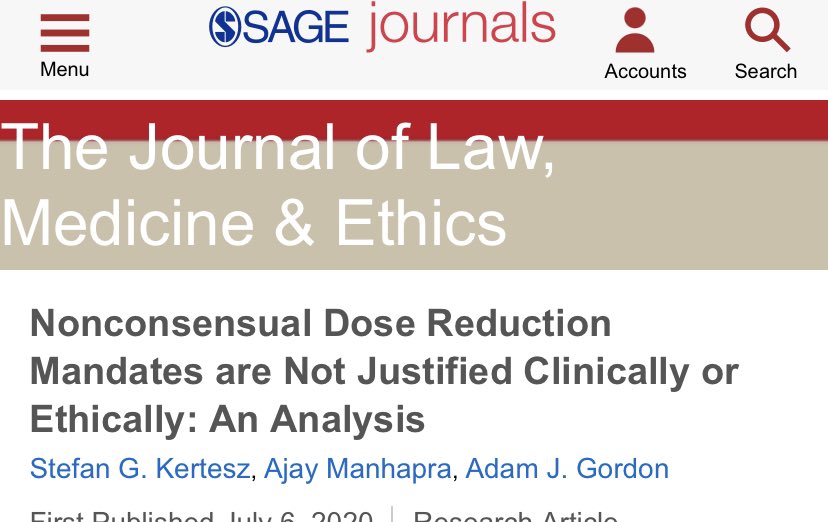
10/For anyone (a) planning new policies or (b) researching the IMPLEMENTATION of opioid prescribing changes, please use our blueprint to promote patient-centered approaches to action and assessment - @JournalGIM @BethDarnall @AllysonVarley link.springer.com/article/10.100… 
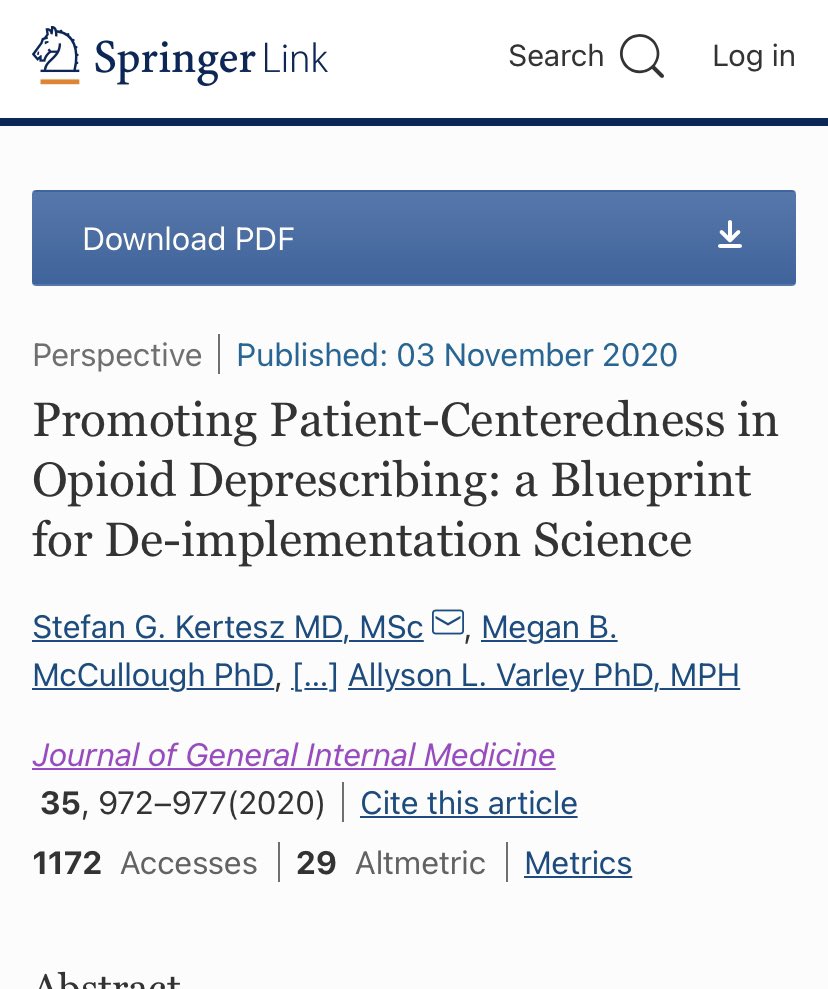
11/There are many other writers & speakers I recommend on #opioidcrisis @maiasz @slsatel @AJ_Gordon @CarlynZwaren @KeithNHumphreys @crackdownpod @DrSarahWakeman @headdock @BobTwillman @speakingabtpain @LeoBeletsky @DrEllenEaton @adfurlan - please engage even if you do disagree
12/For those of us who don’t like where we are headed so far in responding to a tragedy that involves pain, addiction & profound stigma, those 9 articles reflect my best effort, always with cherished collaborators, to redirect and help us revise with #evidence #science #mercy
• • •
Missing some Tweet in this thread? You can try to
force a refresh






